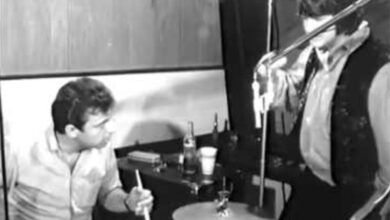Heart’s “Stairway to Heaven” Brought The Song’s Creators To Tears, Demonstrating Its Profound Effect On Listeners And The Audience
The performance of “Stairway to Heaven” by Heart during the 2012 Kennedy Center Honors was a momentous event that resonated deeply with audience members and musicians alike. It showcased the unique ability of music to transcend generations and evoke powerful emotions. Heart, the celebrated rock band fronted by sisters Ann and Nancy Wilson, stood as a strong, female-led ensemble in an industry often dominated by male musicians. Their interpretation of this rock classic not only paid homage to Led Zeppelin but also reaffirmed the sisters’ prowess as vocalists and musicians.
Stairway to Heaven, originally released in 1971, is widely regarded as one of the greatest rock songs of all time. The song’s intricate structure and poetic lyrics have captured the imaginations of listeners for decades. As Heart took to the stage, the atmosphere was charged with anticipation. Audiences were primed for a powerful performance that aimed to breathe new life into a song that already held a revered place in music history. The emotional weight of the occasion was further amplified by the presence of Led Zeppelin’s surviving members, Robert Plant and Jimmy Page, who were there to witness the tribute to their work.
The evening was a remarkable convergence of talent and emotion. As Ann Wilson’s powerful voice soared over the familiar melody, the audience was transported through time, experiencing the song’s profound narrative anew. Nancy Wilson’s harmonies and guitar work complemented her sister’s vocals, creating a rich tapestry of sound that resonated with depth and sincerity. The presence of a gospel choir further enhanced the performance, with their harmonies adding a layer of reverence to the tribute. This choir played a particularly poignant role, representing a unified voice of respect and admiration for Led Zeppelin’s legacy, especially in honor of their late drummer, John Bonham.
The emotional connection to the song was palpable, especially with Robert Plant visibly moved during the performance. His reaction spoke volumes about the bond that artists share with their creations and the memories that are entwined within the fabric of such timeless music. For Plant, “Stairway to Heaven” is not merely a song; it represents a moment frozen in time that encapsulates the spirit of a generation. This performance clearly reinstated the song’s position in the cultural zeitgeist, celebrated by new and old fans alike.
Although Heart faced the immense challenge of performing a song that had been interpreted by so many, they managed to infuse their unique artistry into the piece. The fact that their rendition received accolades directly from members of Led Zeppelin, highlighted not only their musical expertise but also the mutual respect shared among iconic musicians. Plant’s teary-eyed response, coupled with Page’s sincerest compliment, was a testament to Heart’s sensitivity and skill in performing one of rock’s most beloved anthems.
Heart’s legacy in the music world is marked not only by their own impressive catalog of hits but also by their role as pioneers for women in rock music. The band’s success in the 1970s and 1980s demonstrated that female artists could dominate a genre that was often perceived as male-centric. Songs like “Barracuda” and “Crazy on You” put them on the map, but it is their ability to reinvent classic songs that speaks to their versatility as musicians.
This performance at the Kennedy Center Honors also represents a key moment in the ongoing dialogue about the importance of paying tribute to musical legends. It recognizes the artists who have paved the way for newer generations, and serves as a reminder of the power and beauty of shared musical experiences. Such tributes also highlight the interconnectedness of musicians across different eras, revealing how artistry continues to evolve while retaining deep-rooted connections to the past.
In this context, Led Zeppelin’s music transcends mere sound; it becomes part of the cultural fabric that binds generations together. From rockers to pop stars, the band’s influence can be traced through various genres, impacting artists like Metallica, who channel their raw energy, and Lady Gaga, who embodies theatricality in her performances. These connections illustrate how individual songs can take on lives of their own, inspiring countless interpretations and adaptations.
Ultimately, the night was a celebration of art that reverberated through the concert hall, leaving an indelible mark on all who experienced it. The respect shown by both Heart and Led Zeppelin’s members expressed a shared understanding of music as a powerful vehicle for emotion and storytelling. As the applause rang out, it was clear that the performance was not just a tribute to a single song, but a powerful affirmation of the enduring legacy of rock music and the many talented artists who have shaped its narrative.
The heartfelt tribute served as a reminder that music, in all its forms, can evoke profound emotions and connections, allowing the past to resonate within contemporary culture. As much as it was a moment for Heart, it was also a tribute to the unwavering spirit of rock ‘n’ roll, leaving audiences hopeful for future generations of musicians who will continue to push boundaries and inspire.





